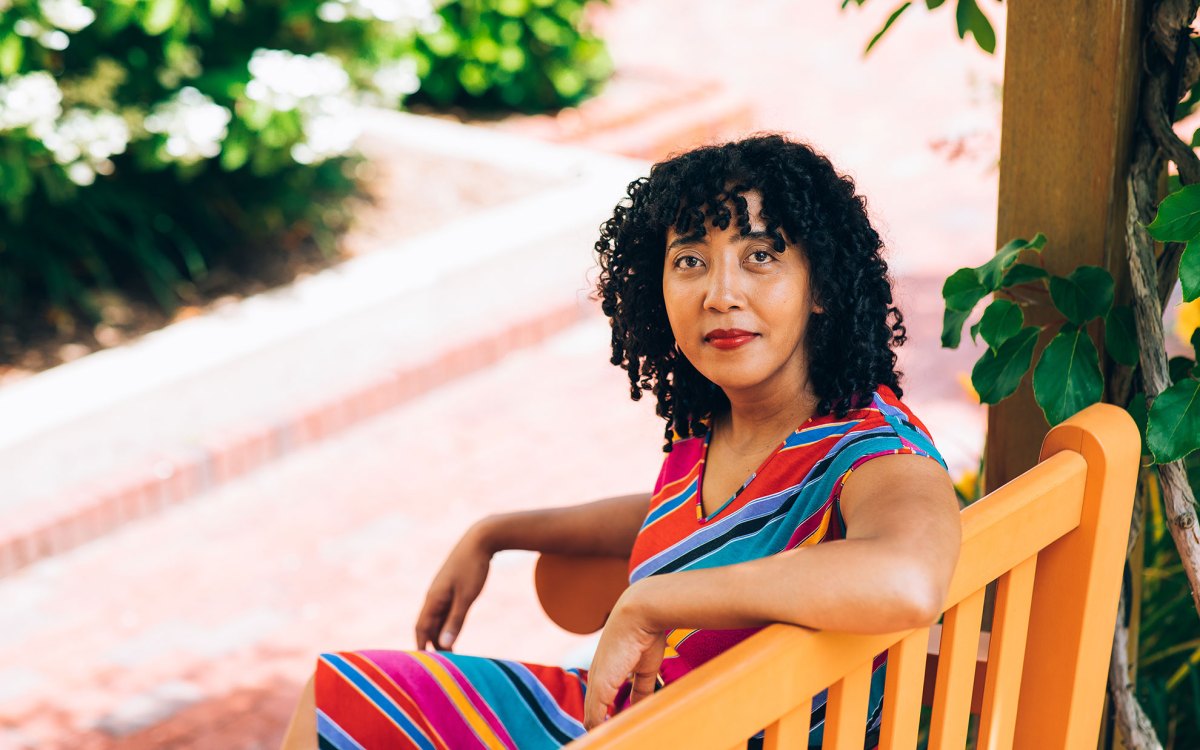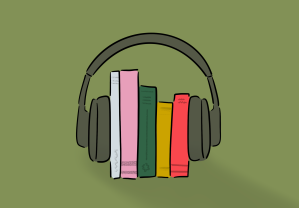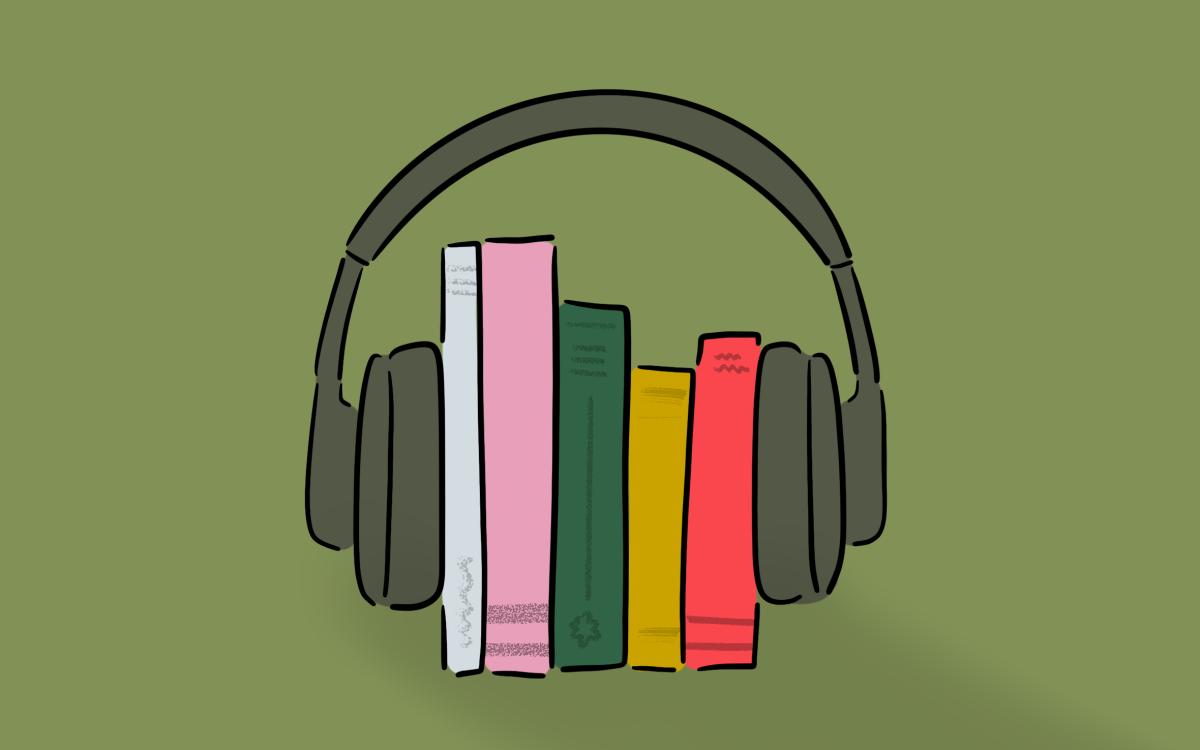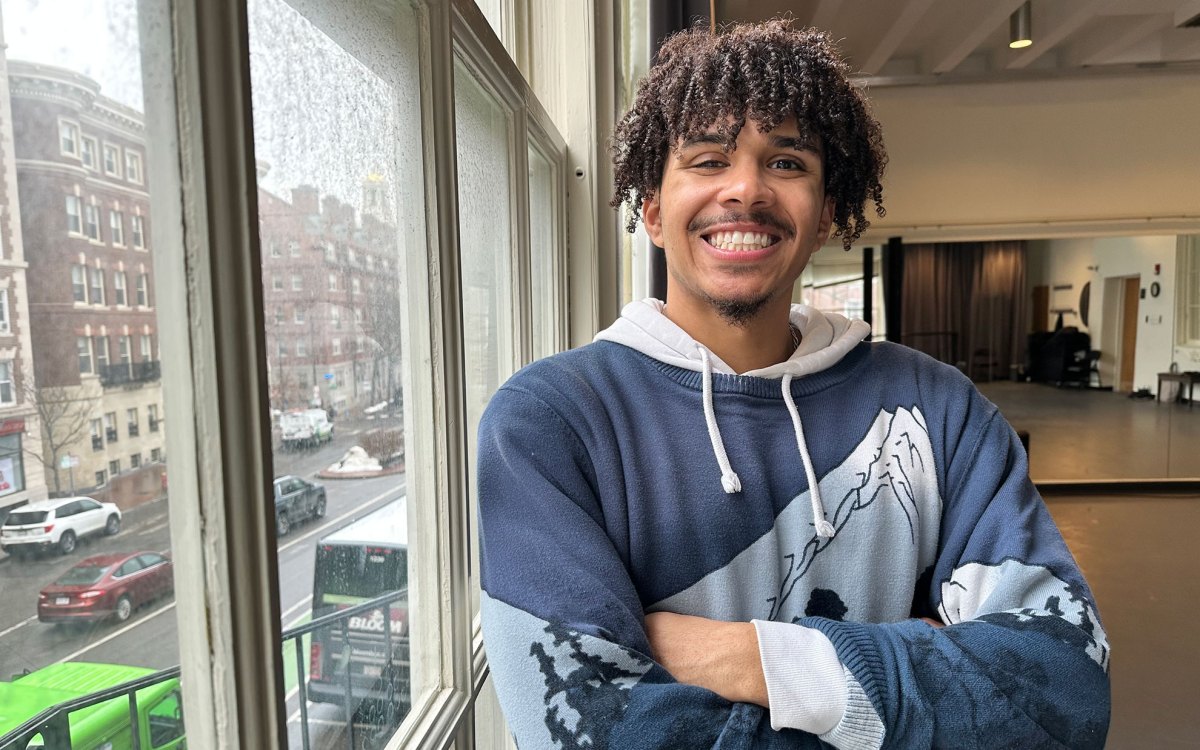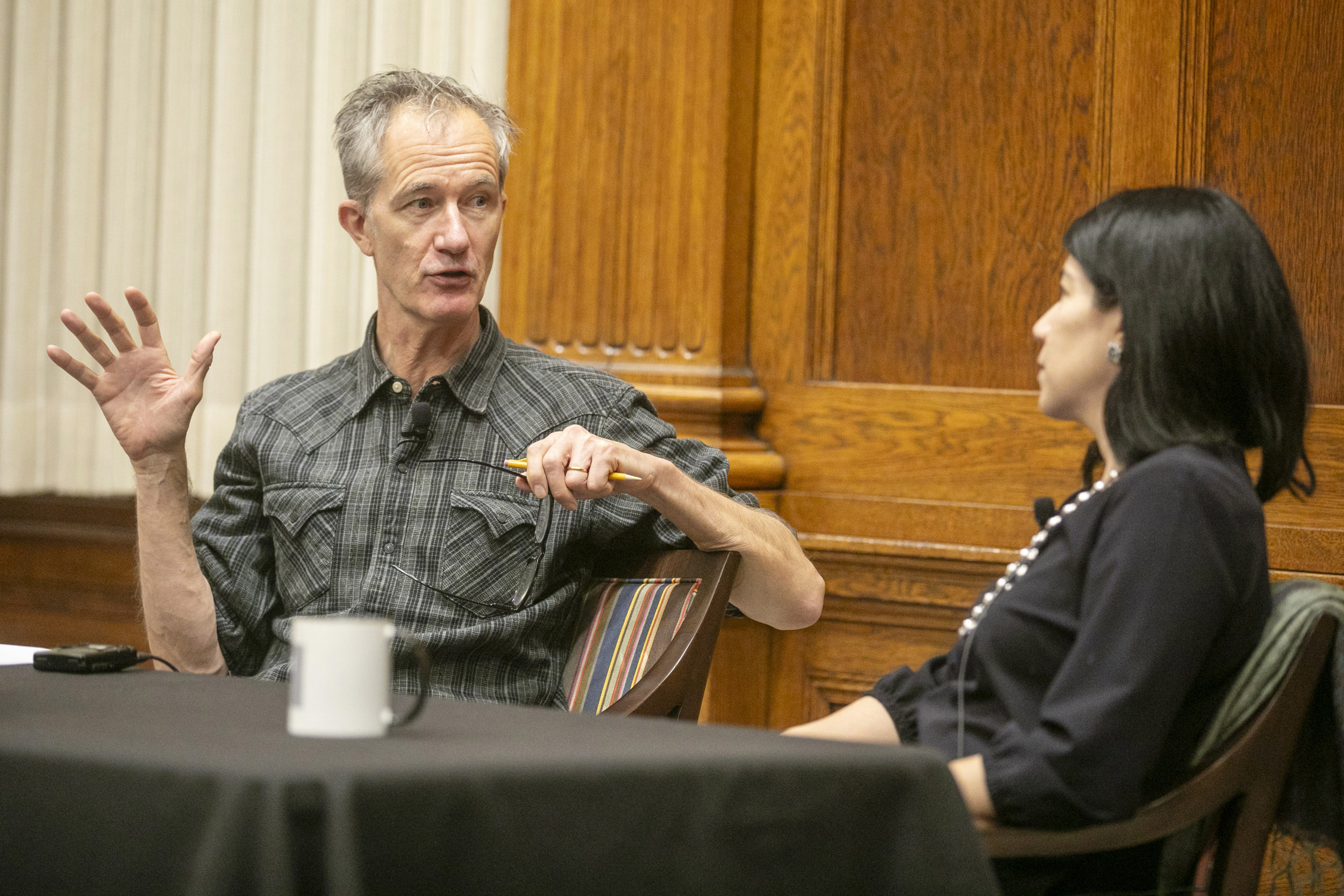
“Because I’m a British boy, there is no getting away from the First World War. I mean it’s there, every level, it’s all around you,” writer Geoff Dyer told Maya Jasanoff.
Jon Chase/Harvard Staff Photographer
Creation of ‘genre-defying, sort-of-uncategorizable’ books
Writer Geoff Dyer talks with Maya Jasanoff about history, memory, and life on the USS George H.W. Bush with 5,000 new friends
Geoff Dyer recalled the way World War I hung over his childhood in England. In fact, a friend’s grandfather would often “drop his trousers” to show scars he sustained from shrapnel wounds suffered in battle. The prize-winning writer called the war the “high point of these people’s lives.”
Dyer made the observation during a conversation at the Barker Center last week with Professor Maya Jasanoff about his various works as part of the Writers Speak series. The author of four novels and 16 works of nonfiction, Dyer was raised in Cheltenham, England, and currently is a writer in residence at the University of Southern California.
Jasanoff, the X.D. and Nancy Yang Professor of Arts and Sciences and Coolidge Professor of History, opened the event by referencing a quote from Dyer’s book “The Missing of the Somme,” a piece of creative nonfiction that blends travelogue and meditation on how World War I is remembered. Dyer wrote, “There is a sense in which, for the British at least, the war helps to preserve the past, even as it destroyed it. The past as past was preserved by the war that shattered it.”
Jasanoff recalled the power the conflict held on the imaginations of all during the period of her own childhood as well as Dyer’s.
“Because I’m a British boy, there is no getting away from the First World War. I mean it’s there, every level, it’s all around you,” said Dyer who was born in 1958. Because the war was global, he said that anywhere you go there are war memorials — whether in a quaint town in Australia or in a large city in Canada.
He also pointed to photography’s role in shaping how we feel about the conflict. Elements such as sepia toning and speedier film create a sense of presence in a locked-down past, he said.
“When you look at people lining up to recruit in 1914, there they are, these young people very much alive, but they seem doubly dead because they seem like they’re queuing up for their deaths,” Dyer said.
This visual record we have of the war contributed to how we commemorated it. At the Battle of Somme, more than 57,000 British soldiers were killed. Dyer quoted famed British military historian John Keegan, who called this the “end of an age of optimism in British life that has never been restored.”
In response, Jasanoff, who is American, said, “I’m struck in thinking about the ways in which the English have made an art out of turning tragedy into a source of national pride. So in that sense, there’s some sort of perverse optimism to be found.” Amid laughter from the audience, Dyer agreed that the British do tend to glorify failure.
Over the course of the evening Dyer read excerpts from a few of his works, including one from “Another Great Day at Sea,” a work of creative nonfiction chronicling his two-week stint aboard the aircraft supercarrier USS George H.W. Bush. (The former president was a naval aviator during World War II.) Jasanoff asked why there was no mention of combat in the account, as Dyer’s time at sea took place while the U.S. was engaged in Afghanistan.
“No one would be interested in me saying, ‘Should we have done it?’ I think by then it was obvious that we shouldn’t have done it,” Dyer said. “It was very much just on that day-to-day experience. I was so completely full of admiration for reporters, especially people like David Finkel and [Dexter] Filkins, who were able to notice all of this stuff while the bullets were flying, and I realized so much that I wasn’t a reporter.”
Dyer spoke about his experience living alongside 5,000 Navy personnel on board the carrier, some of whom he joked probably enlisted after watching the movie “Top Gun.” He said he was overwhelmed with admiration, even for those whose political views were “a million miles away” from his own.
“They’re all very young,” Dyer said. “Typically these kids are completely uneducated kids from in the Midwest, the Bible Belt, this kind of thing. They’re the age I was when I was a student, and I was just so impressed by them, by the level of responsibility, by how well they did their jobs. I think, what was I like at 18? I was getting blind drunk and being a jerk.”
Concluding the event, audience members got to ask Dyer questions.
One audience member noted playwright David Hare once said the two most depressing words in the English language are “literary fiction,” but Dyer has been quoted as saying “creative nonfiction” could be a contender. The question was: Why?
“I say that because this thing that I do, this genre-defying, sort-of-uncategorizable book that’s becoming a category in its own right — there’s a formula that’s becoming available. And I compare that with the kind of nonfiction I like reading, which is the real hard craft of writing: ‘The Power Broker’ by Robert Caro, for example.”
